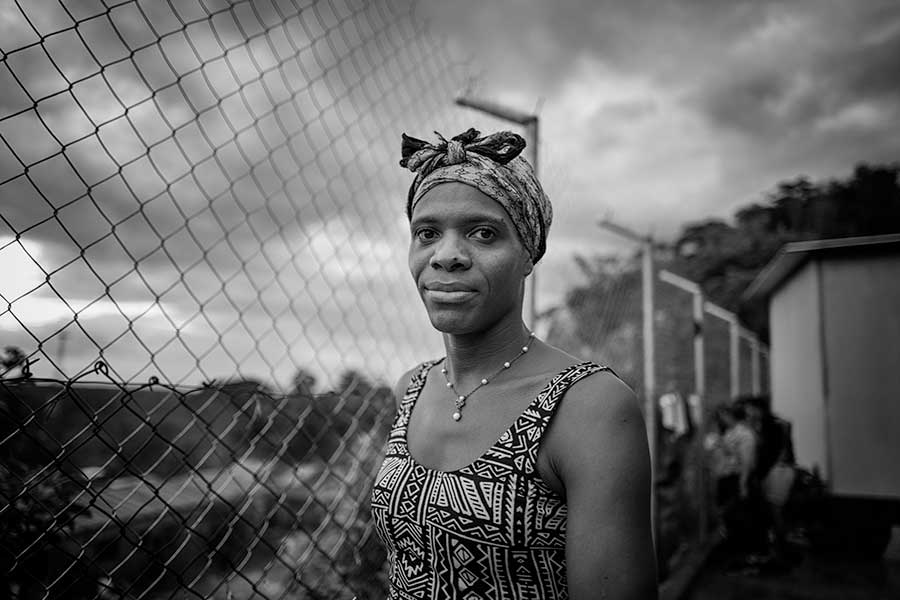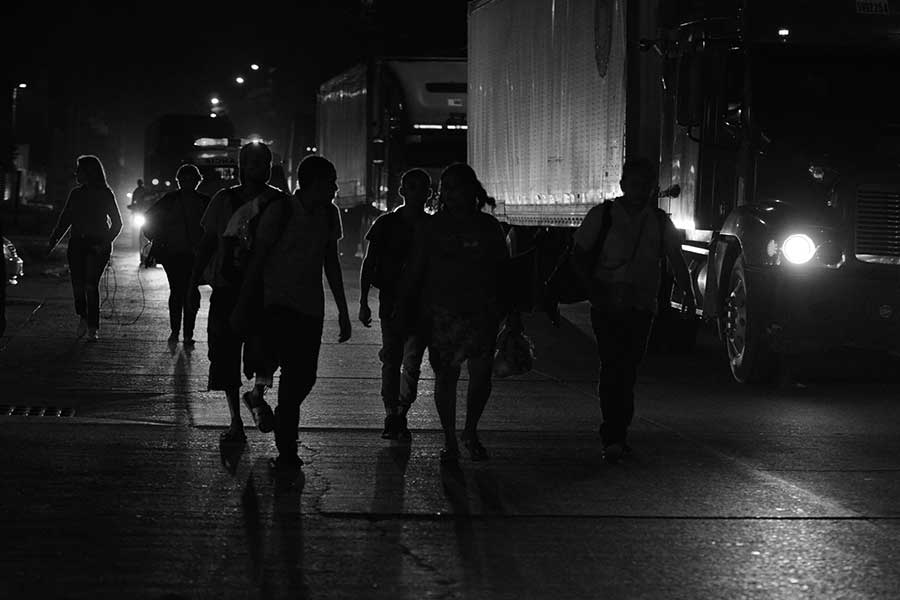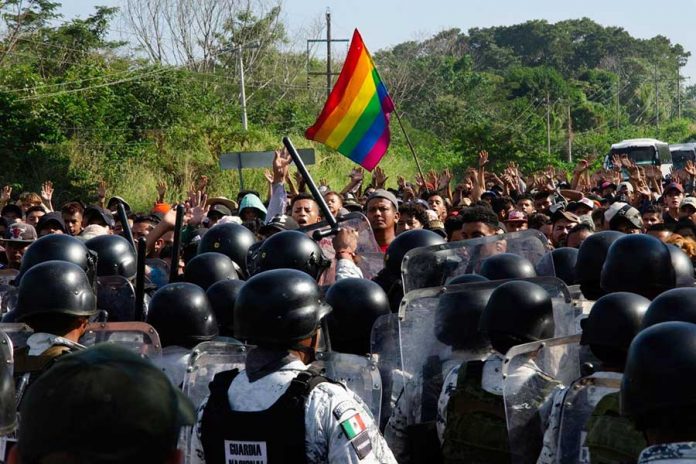Mexican-born fine arts photographer Ada Trillo, photo-documented the 2018 and 2020 Central American migrant caravans seeking asylum in Mexico and the U.S.
Trillo, a bisexual woman who lives in Philadelphia, traveled with the 2020 caravan members as they departed Honduras on Jan. 15 and made their way through Guatemala to Mexico. As they approached Mexico, the asylum seekers were divided into two groups, both of which were ultimately deported back to Honduras against their will. When one group of migrants initially tried to cross the Suchiate River at the Mexico/Guatemala border, they were tear-gassed by the Guardia Nacional, according to Trillo.

Ashley, a trans woman Trillo met at the shelter of El Ceibo, Guatemala, on the Mexican border.
Many of the travelers were members of the LGBTQ+ community escaping extreme discrimination and violent living conditions in Honduras.
Same-sex marriage, adoption for same-sex couples and the legal recognition of trans people’s identities are banned in Honduras. The country’s LGBTQ people have been encountering violence and homicidal attacks at high rates. Since 2009, 277 LGBTI people have been murdered in Honduras, according to the law organization Latin American Working Group via Cattrachas, an organization devoted to driving and protecting LGBTQ rights in Honduras. Members of the organization successfully changed three articles of the Honduran penal code to enforce legal ramifications for hate crimes against LGBTQ people.
As Trilo documented the 2018 caravan, ella (Spanish language pronoun) witnessed LGBTQ people experiencing physical and verbal harassment from other travelers, forcing them to separate from the group.
“The human rights that are being violated are extreme with the LGBT communities,” Trillo said. “They are in incredible danger.”
Trillo also noted that that few news journalists have been covering the Central American caravans’ trajectories from the beginning, that most of the coverage takes place at the U.S./Mexico border.

“I feel that if you can represent the journey and how hard it is, and what people are willing to do in order to have a new chance at life, you can have respect for them,” ella said.
While traveling with the 2020 caravan, Trillo befriended a 27-year-old trans woman named Ashley.
“She had joined the caravan leaving for the U.S. border because her life was being repeatedly threatened in Honduras, simply for being a transgender [person,]” Trillo said in an email.
Ashely also told Trillo that she wanted to become a makeup artist but wasn’t able to actualize that dream in Honduras.
“She felt that the one place where she could pursue her dreams without fearing for her life would be in the United States,” Trillo said.
Trillo cited the culture of machismo that pervades some Latin American countries as a contributing factor of violence directed toward LGBTQ people.
“Having lived in Mexico and traveled in Latin America… It’s very male-dominated and you can’t really be your own person. I understand those stigmas. They can really damage entire generations of families.”
President Trump’s new asylum policy, which thwarts the efforts of those fleeing persecution to seek asylum in the U.S., is in violation of the U.S. Constitution and numerous treaties signed by members of the U.S. government. One such treaty is the 1951 Refugee Convention, which dictates that “a refugee should not be returned to a country where they face serious threats to their life or freedom.”
Trillo explained that before President Trump threatened Mexico with tariffs, Mexican President Andrés Manual López Obrador supported safe passage for asylum seekers. Now, Mexican officials have positioned soldiers at the border to prevent Central American migrants from entering the country.
“The human cost of Trump’s political agenda is denying people their fundamental human rights,” Trillo said. “For many asylum seekers, deportation will result in living a life of extortion, impoverishment and even death. The full effect of Trump’s xenophobic policies toward immigrants and asylum seekers will no doubt be felt for generations to come.”
In addition to the migrant caravans, Trillo has photographed forced sex work in Juarez, Mexico. Trillo’s work has been shown internationally, including in London, Luxembourg and at Saint Joseph’s University in Philadelphia, and is part of the permanent collection at the Philadelphia Museum of Art.
